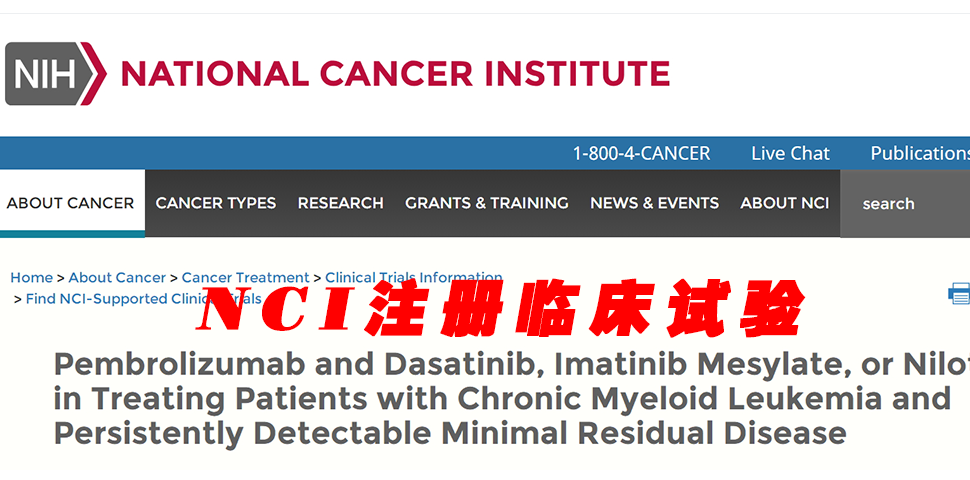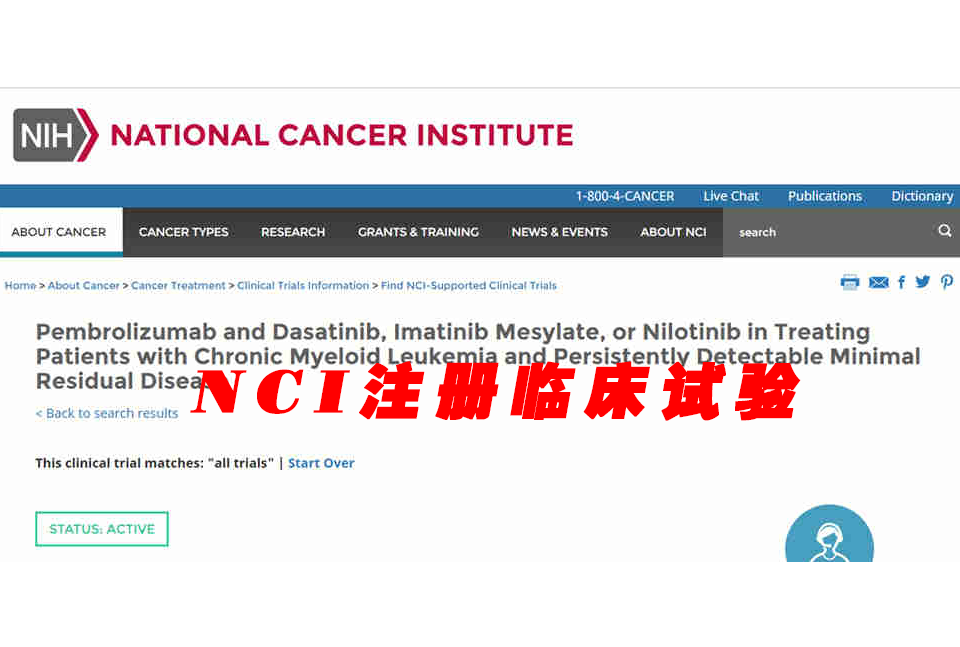- 如有疑问,请联系电邮
- customer@ihealth66.com
最新临床试验:帕博利珠单抗和达沙替尼、甲磺酸伊马替尼或尼洛替尼治疗慢性髓系白血病合并可持续检测微小残留疾病的患者

USNEWS:戒烟有助于减轻背痛吗?
2019年6月14日
USNEWS:前列腺癌-治还是不治?
2019年6月19日这是经美国国家癌症研究所批准的一项多中心随机对照 II期临床试验,目的是研究帕博利珠单抗和达沙替尼、甲磺酸伊马替尼或尼洛替尼在治疗慢性髓性白血病合并可持续检测最小残留疾病(定义为血液中一种称为bcr-abl的基因产物)患者的作用。单克隆抗体,如帕博利珠单抗,可能会干扰癌细胞生长和扩散的能力。达沙替尼、甲磺酸伊马替尼和尼洛替尼可通过阻断细胞生长所需的某些酶来阻止癌细胞的生长。给予帕博利珠单抗和达沙替尼、甲磺酸伊马替尼或尼洛替尼治疗慢性粒细胞白血病可能效果更好。
该临床试验在全美195家医院进行开展。
This phase II trial studies how well pembrolizumab and dasatinib, imatinib mesylate, or nilotinib work in treating patients with chronic myeloid leukemia and persistent detection of minimal residual disease, defined as the levels of a gene product called bcr-abl in the blood. Monoclonal antibodies, such as pembrolizumab, may interfere with the ability of cancer cells to grow and spread. Dasatinib, imatinib mesylate, and nilotinib may stop the growth of cancer cells by blocking some of the enzymes needed for cell growth. Giving pembrolizumab and dasatinib, imatinib mesylate, or nilotinib may work better in treating patients with chronic myeloid leukemia.
Trial IDs
Secondary IDs NCI-2017-02161
Clinicaltrials.gov ID NCT03516279
Age: 18 years and over
Gender: Male or Female
Location: 195 locations





